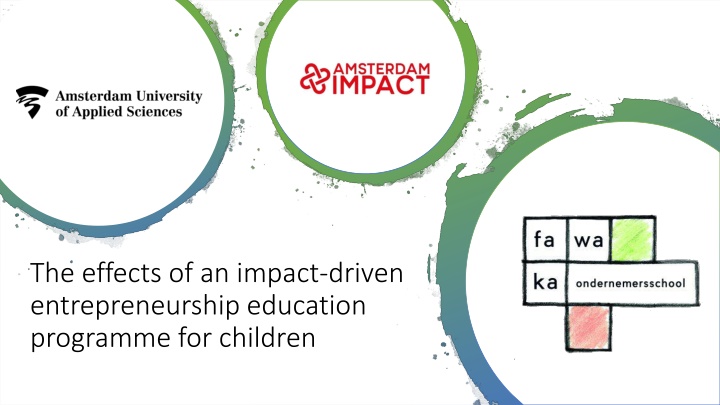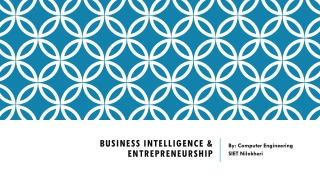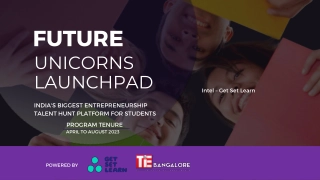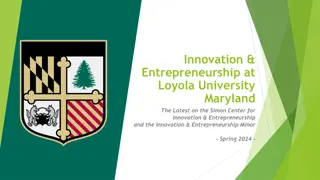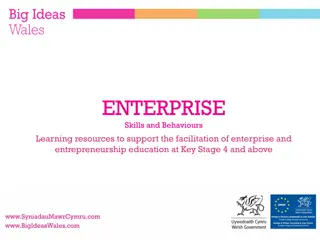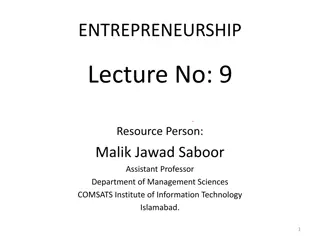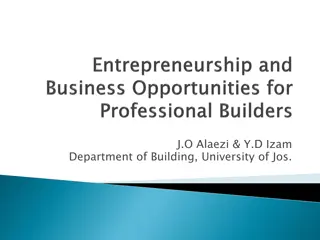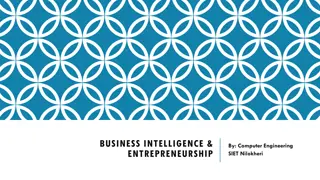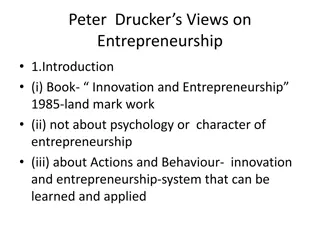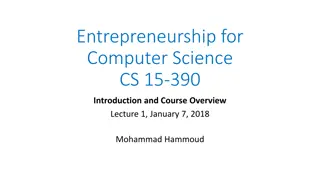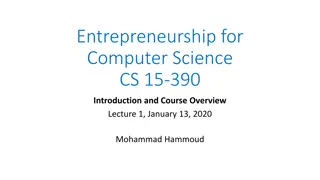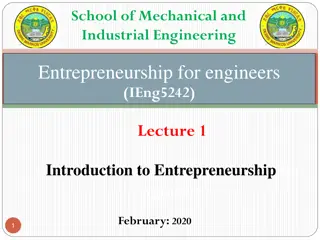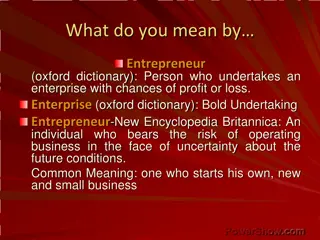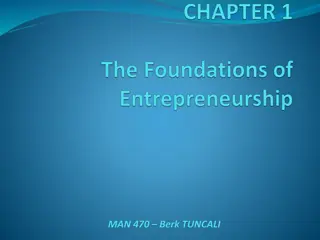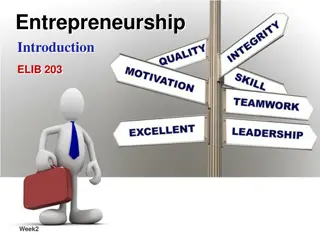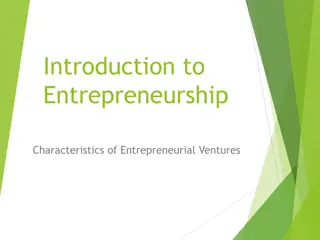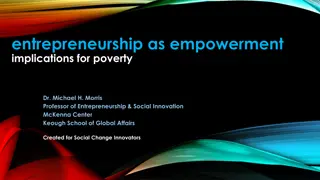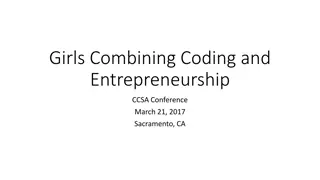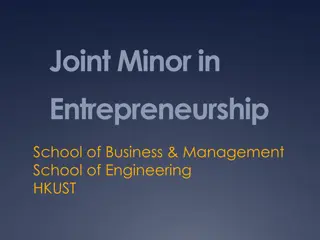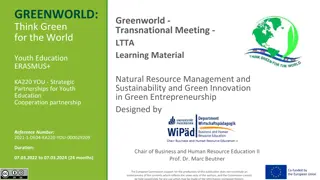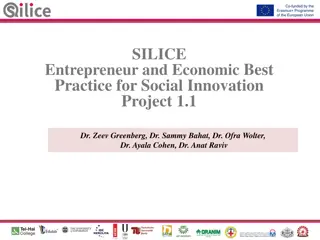Impact of an Entrepreneurship Education Program for Children
The research explores the effects of an impact-driven entrepreneurship education program for children, focusing on social entrepreneurial competency development and the shift towards societal and environmental impact. It delves into the Dutch and Amsterdam context, the Fawaka education program, measurement tools used, and the research question on the development of social entrepreneurial attitudes, skills, and intentions among children. The study emphasizes the need for a broader perspective in entrepreneurship education beyond profit-making.
Download Presentation

Please find below an Image/Link to download the presentation.
The content on the website is provided AS IS for your information and personal use only. It may not be sold, licensed, or shared on other websites without obtaining consent from the author.If you encounter any issues during the download, it is possible that the publisher has removed the file from their server.
You are allowed to download the files provided on this website for personal or commercial use, subject to the condition that they are used lawfully. All files are the property of their respective owners.
The content on the website is provided AS IS for your information and personal use only. It may not be sold, licensed, or shared on other websites without obtaining consent from the author.
E N D
Presentation Transcript
The effects of an impact-driven entrepreneurship education programme for children
Scientific background and gaps The Dutch and Amsterdam Context Fawaka s education programme Research process and results Conclusions and next steps Discussion Agenda Agenda
Entrepreneurship Education (EE) Effect measurement in EE for children is mainly based on evaluations by teachers, with little attention to children themselves (Social) entrepreneurial competency development Research into development of social entrepreneurial skills in primary education is limited Social entrepreneurship Most EE for children is still focused on making money rather than on societal and environmental impact Research: scientific background and gaps
Dutch SE context Bottom-up development Social business perspective Rich SE ecosystem
City of Amsterdam 870,000 inhabitants Huge inequalities between neighborhoods Rich and varied SE ecosystem
Fawakas Fawaka s program program Lesson series on social and sustainable entrepreneurship 6 x 2 hours, Fawaka teacher Aimed at 9-12 year-olds Children start own company Two programs: Choco and Upcycle
Research question To what extent does participation in SE education contribute to development of social entrepreneurial attitudes, skills and intentions among children?
Measurement tools inspired by: Self-Determination Theory Theory of Planned Behaviour Fawaka s Theory of change Tools used: Questionnaire among all children (T0 and T1) Group interviews children Short interviews parents (phone) Fieldnotes Mixed methods
Approval Ethical Committee So far: questionnaire data on 408 children; 301 sets T0-T1 14 group interviews children 32 parent interviews Data collection Note limitations: bias, unfinished, social pressure, etc.
Younger children give higher marks Average mark 8.2 Out of 10 Choco higher than Upcycle Proud 4.3/5 Had fun 4.2/5 Results - evaluation Learned new things 4.3/5
Results - knowledge
Results - intention
Results intention (2)
Some remarks by children People should ask childrens opinions more often. There projects are great and should happen more often I do not want my own company because I will be an astronaut and as I will go to space I will not be on earth I do not care how much I earn. I care about being happy I liked it, especially because you were allowed to be bold and free. I felt a bit older than I actually am. I learned a lot and will take better care of nature from now on They should give more lessons because it is important
Conclusions Conclusions The program is valued highly and brings the children pride and joy A concrete subject like chocolate gets higher marks Children get a more realistic view of (social) entrepreneurship The programs seems to help bridge gaps between boys and girls in relation to entrepreneurial intentions
Develop an international research and action consortium Consisting of: Impact driven entrepreneurship providers (IDEP) Universities Policy-related ecosystem players like schools associations and local governments Next steps Goal: exchange experiences and develop knowledge, based on local work practices to strengthen the agenda around impact-driven entrepreneurship education
Ellen Oetelmans Egon van Wees Claudia Cuypers Maarten Hogenstijn www.iamsterdam.com/en/business/amsterdam-impact www.fawakaondernemersschool.nl/ www.amsterdamuas.com/entrepreneurship/projects/fawaka.html Research coordinator and contact person: m.hogenstijn@hva.nl Arthur Dani ls
